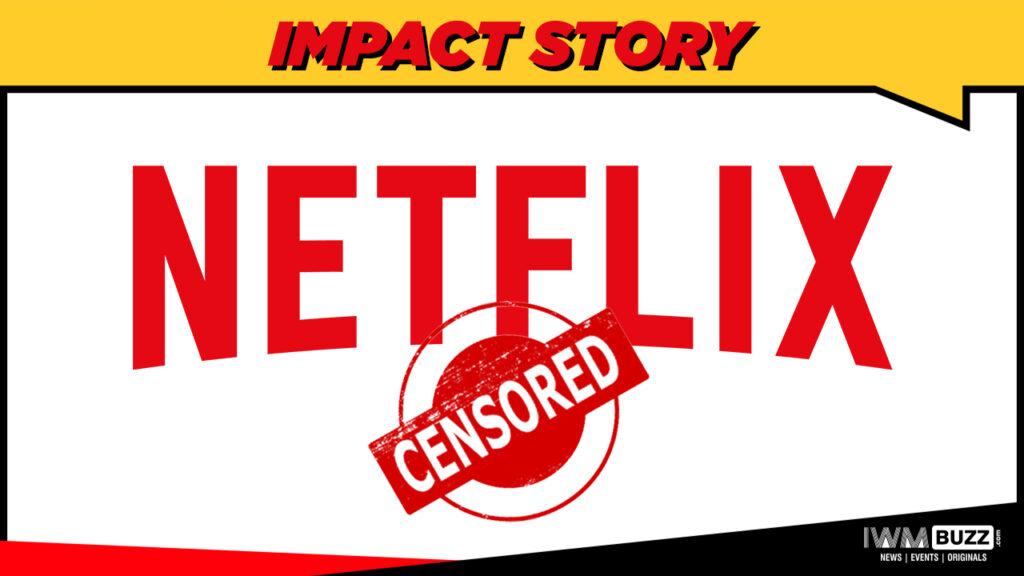This particular piece of writing intends to bring into focus a particular incident, or rather an act, which arguably impacts the core idea of creative freedom in the Indian OTT and web entertainment space. It is important and imperative that we deliberate over it.
The Indian OTT business has seen massive growth over the last couple of years. As per a PwC report, Indian video OTT service is set to grow at 21.8% CAGR to reach $1.7 billion by 2023, from $638 million in 2018. Subscription video on demand to grow at 23.3% CAGR to $1.5 b, 89.4% of overall revenues (Source: Economic Times).
Numbers seem encouraging indeed.
Not to mention, the surplus of web originals being doled out by all major and minor networks, often leading to confusion rather than contentment (for viewers).
In order to stand out in the clutter, apt marketing and PR is essential to ensure content discovery.
One such giant, of course, is Netflix, which made a splash in India via its ground-breaking original web series, Sacred Games. Great content coupled with hammering promotion ensured a definitive win in competitive market perception.
Now, Netflix India follows the international or so called ‘Hollywood standard’ of engagement when it comes to organizing media interactions. This entails them providing a ready-made set-up, almost a controlled setting, wherein the scribe interviews the concerned stars/representatives and the footage of the conversation is later sent to the particular media house or journalist (or the interviewer).
Usually, in a majority of cases, a journalist, equipped with his or her weapon of justice, i.e. a camera, interviews or captures an activity/moment and is in ownership of the data/footage for usage, unlike in the above mentioned case.
The argument could be that the ‘international standard Netflix method or provision’ (compared to the desi norm) allows seamless management/planning and also, many a time, better quality content in terms of production (not necessarily questions).
Or is it a means via which Netflix India intends to keep a tab on communication flow?
A few months ago, August 2019 to be precise, a journalist named Sonup Sahadevan took to social media to share a rather alarming incident and raised an allegation against Netflix India. It’s related to him being a part of a media interaction for the release Sacred Games 2, wherein he interviewed director Vikramaditya Motwane and actor Pankaj Tripathi.
During the course of the conversation, he asked a question to Pankaj, which the actor readily answered. Like always, the scribe left the building post the interaction and the interviewed footage stayed in Netflix India’s custody.
“I received the footage after 4 to 5 days of the activity. However, what really upset me was the fact that Netflix had edited out a particular question which I had asked Pankaj. And they did that without my consent. They had no right to do that,” says Sonup to IWMBuzz.com.
Post the incident, Sonup took to social media to address his concern.
Later, as he says, “I wrote a mail to the PR Agency head which handles Netflix India. Their representative reached out to me, met me and even regretted the incident and I decided to let it go. I have no grudge against anyone, we all want to work as professionals. However, I firmly believe it is time to put an end to the authoritarian Netflix practice of disallowing the press from having their own camera and crew for Netflix interviews. End this practice and you will safeguard the freedom of press. No other OTT platform including Amazon Prime restrains media houses from getting their own crew for video interviews. ”
To ensure fair representation of both sides of the story, we wrote a detailed mail to Netflix India representatives, seeking more information on the incident. However, they wrote back stating that they have “no comments’ on the issue (we have copies of the mail exchange).
However, another senior scribe, on grounds of anonymity, opined that the incident was one off and has never been repeated by Netflix (till date). He, in fact, supported Netflix’s method of conducting interviews “for it allowed better and engaging conversations”.
We, at IWMBuzz, are no one to judge on the method or policies. To each his own, and any organization has full rights to decide on its code of conduct. However, the fact that someone at Netflix, a global premium organization, decided to chop off question/s, which did not align with the core communication theme or agenda, is distressing. And when big organizations decide on a certain way of conduct, which, if disputable and goes unchallenged, often becomes a norm and gets conveniently replicated by all others.
This is where we decide to raise a question for the greater good.
It is for the readers and audience to decide what is right or wrong; however, freedom of expression is sacrosanct.
Netflix India has our contact details and at any point of time, if they choose to comment or clarify the concern, we are happy to share it with our readers and fraternity.
Keep reading IWMBuzz.com.

